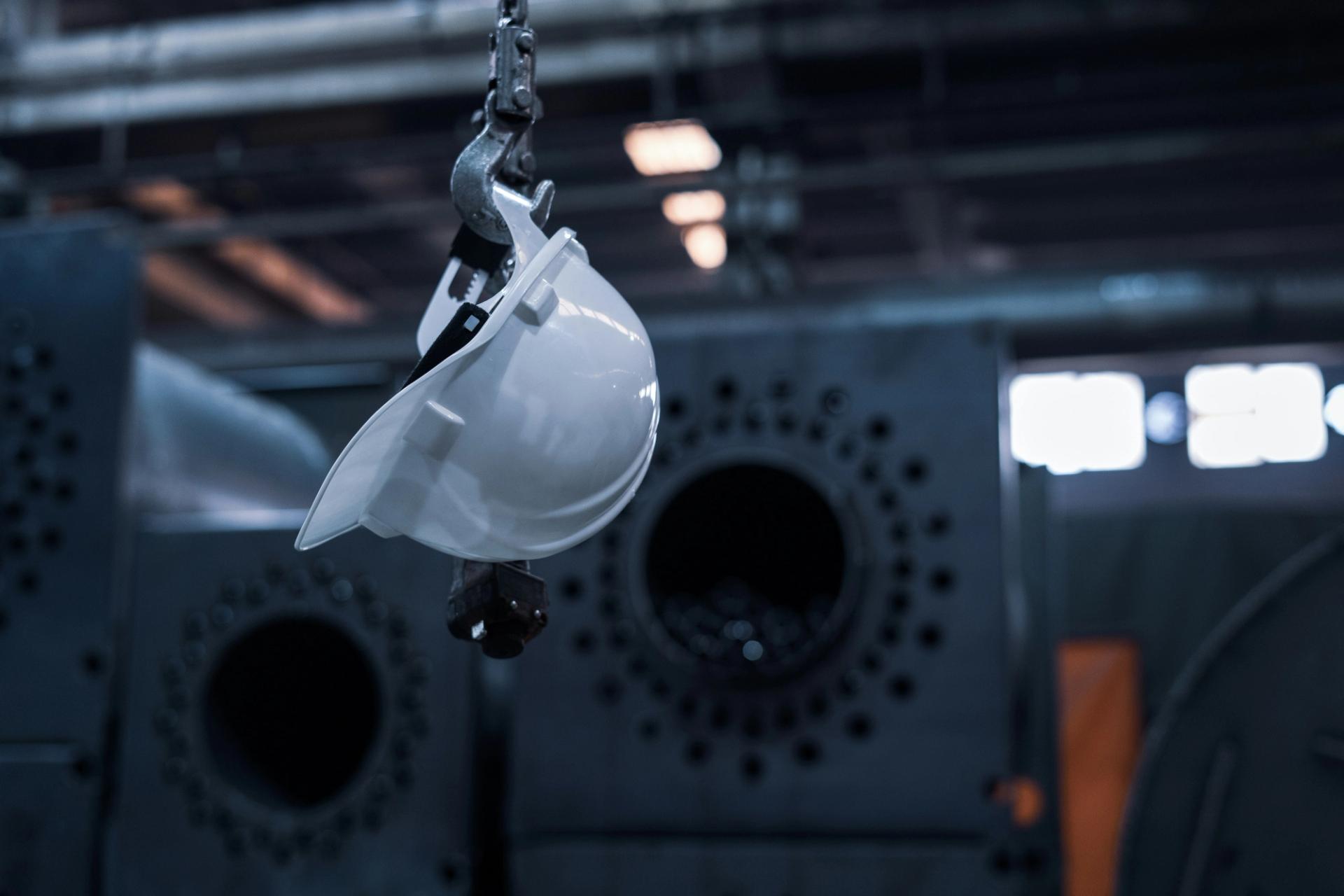Allensbach Study: German industry loses ground – key sectors doubt their own future / Expected loss of German technological leadership
October 20, 2025
- New Insight

These are the results of a recent survey of board members and managing directors of German industrial companies conducted by the Allensbach Institute for Public Opinion Research on behalf of the management consultancy FTI-Andersch.
- Where access to credit is difficult, 90 percent of companies are halting investments and almost half are cutting jobs
- Almost half of all industrial companies are severely affected by global protectionism – but most are responding inadequately
- 30 percent of energy-intensive companies are reducing products, while 22 percent are relocating production processes abroad
83 percent of all companies surveyed see their planning capabilities deteriorating, almost half are severely affected by increasing global protectionism, and 18 percent report more difficult access to credit – resulting in investment freezes and job cuts.
“There has already been intense discussion in recent years about the economy, growth rates, and location conditions,” says Christian Säuberlich, spokesperson for the FTI-Andersch Executive Board and Country Leader of FTI Consulting in Germany, Austria, and Switzerland (DACH). "This study shows that the problems facing key German industries run deeper: they lie in the competitiveness of a large number of companies – and not just in external conditions. The Allensbach study reveals why Germany is falling behind in international competition."
Mechanical and plant engineering: The majority of respondents expect Germany to lose its leading role
German mechanical engineering companies are experiencing a historic break: “The majority now assume that technological leadership will no longer lie with Germany in the future, but with other countries, such as the US and China. This is a significant change in the self-image of an industry that has been regarded as a global benchmark for quality for decades,” says Christian Säuberlich.
Fifty-one percent of companies expect to lose their technological leadership, and 70 percent say they would be severely or very severely affected by this. Ninety-three percent also expect Chinese manufacturers to enter the European market on a broader scale, with around two-thirds (62 percent) believing this has already happened or is very likely to happen. The companies affected are investing in classic countermeasures: 86 percent in software expertise, 73 percent in faster innovation cycles, and 66 percent in niche strategies. However, disruptive steps remain the exception: only one-fifth are planning investments in start-ups, while one-third are considering business models in which the production of machines and systems is supplemented by services that are no longer related to their own products.
“The fact that a majority of companies no longer believe in their own leadership role is a warning sign that cannot be ignored,” says Christian Säuberlich. “This will have a noticeable impact on the sector. At the same time, the figures show that one in two is prepared to take on international competition. This is crucial in order to take precisely those transformational steps that will secure future quality and market leadership.”
Automotive: Not prepared for cooperation with Chinese OEMs
German automotive companies are at a turning point: “Structural challenges to their business model are now openly acknowledged. Until now, these were often described as temporary, but this hope seems to be fading,” says Christian Säuberlich.
Sixty-four percent expect to be affected by the decline in the combustion engine market, and more than a third feel strongly or very strongly affected by it. Nevertheless, more than half are sticking to products and services related to combustion engines. Eighty-three percent of suppliers consider cooperation with Chinese manufacturers to be difficult, and almost half (47 percent) even consider it to be very difficult. Only a minority are specifically developing products or capacities for this market: only 25 percent are specifically establishing or planning to establish sales structures for Chinese manufacturers with a presence in Europe, while 19 percent are specifically developing or planning to develop products that meet the technical requirements of Chinese car manufacturers. The majority (57 percent) are therefore not even entering the battle for Chinese OEMs.
Instead of investing in their own core business, 79 percent of companies directly affected by structural change are looking for business in other industries, including a particularly large number in the defense sector (25 percent), followed by energy, aviation, medical technology, and the railway industry.
“The public debate about the slow pace of e-mobility falls short,” says Christian Säuberlich. "The Allensbach figures show that the problems many suppliers are facing today have arisen on several levels: from the lack of preparation for cooperation with Chinese OEMs expanding in Europe to dependence on the shrinking combustion engine market. Chinese competitors will not be held back; the only question is how to position oneself in relation to them. For some companies, venturing into other industries may be the right strategic option. But one thing is clear: this will not work for everyone. And the transformation to get there will significantly change the core of these companies."
Energy-intensive industry: Strategic options appear to have been exhausted
Almost all companies in energy-intensive industries consider it likely that many companies in their industry will leave Germany – 94 percent overall, with more than half (56 percent) considering it very likely. Only six percent do not see this risk, or see it as negligible.
“One of the main reasons is the high energy prices in Germany,” says Christian Säuberlich. The responses to this are as follows: 93 percent have launched or are planning efficiency programs, 86 percent are focusing on their own energy generation, and two-thirds (68 percent) are concluding long-term direct contracts. Thirty percent are reducing products, and 22 percent are relocating production steps abroad.
Competitive pressure from outside Europe is further exacerbating the situation: more than half of companies (56 percent) feel under strong pressure, and 23 percent feel under very strong pressure. Non-European competitors benefit from lower energy prices, government subsidies, and less stringent regulations. To counter this, almost all affected companies are investing in automation and digitalization (98 percent), while many are also investing in specialization (72 percent) or brand strategies such as “Made in Europe” (71 percent).
“Many companies in the study stated that they are currently planning few further transformation measures. That would be a mistake,” says Christian Säuberlich. "This only partially corresponds with our observations in practice. There, we see much more frequently that owners and management are willing to take major steps toward change in order to keep their companies competitive. For many, this means specifically: processes are being relocated abroad, value creation is being focused on core products, and we are seeing strong efforts to secure government subsidies. It is crucial to take these steps now – and not wait for the framework conditions to change. You can't calculate the future that way."
Overarching challenges: financing, protectionism, predictability, and AI
The study does not reveal any widespread problems with financing. However, where access to debt capital is difficult, the consequences are immediate: 18 percent of industrial companies report difficulties in accessing credit – 28 percent in the automotive industry and 20 percent in energy-intensive sectors. In these cases, 90 percent are postponing investments, almost half (48 percent) have already cut jobs, and another 16 percent are planning to do so. The financing gap thus hits precisely those sectors where the pressure to transform is greatest.
At the same time, other factors are weakening the ability to act: 83 percent see their predictability deteriorating, more than half significantly. Nevertheless, many continue to forego fundamental tools such as scenario analyses or early warning systems. Almost every second company (43 percent) is strongly affected by the new protectionism, but the majority are responding inadequately. Although artificial intelligence is widely used (nine out of ten companies), it remains largely limited to generative applications such as text or image creation. Industrial applications such as quality assurance or predictive maintenance are currently only used by a minority.
“What we are seeing is not an economic downturn, but a structural break,” says Christian Säuberlich. "The survey makes it clear that entire industries will shrink noticeably in the coming years. However, what applies to industries does not necessarily apply to individual players in these industries in the same way. On the contrary: those who analyze the situation wisely now and are prepared to make fundamental decisions can emerge from this crisis even stronger and continue to grow in a reorganized competitive environment. Those who, on the other hand, indulge in blaming the environment and the location for their problems will disappear from the market."
Methodology
For the German Economic Pulse 2025 – State of German Industry, the Allensbach Institute for Public Opinion Research conducted a telephone survey of a total of 169 German industrial companies in late summer 2025 on behalf of the management consultancy FTI-Andersch. The focus was on the energy-intensive industry (64 companies), mechanical and plant engineering (58), and automotive companies (47). The sample includes both medium-sized companies (67 with sales < €100 million) and corporations (102 with sales > €100 million). Around 80 percent of the interviews were conducted with board members or managing directors, the rest with division heads from the areas of finance, strategy, and sales – the results thus reflect the assessments of top management.
About FTI-Andersch
FTI-Andersch is a management consultancy that supports its clients in the development and implementation of sustainable future/performance and restructuring concepts. FTI-Andersch actively supports companies that are facing strategic, operational, or financial challenges and change processes – or that want to align their business model, organization, and processes for the future at an early stage. Its clients include, in particular, medium-sized companies and corporations that operate internationally. FTI-Andersch is part of the FTI Consulting Group (NYSE: FCN) with more than 7,900 employees worldwide.
Your Contacts
 Dorothée Fritsch
Dorothée FritschHead of BD, Marketing & Strategy